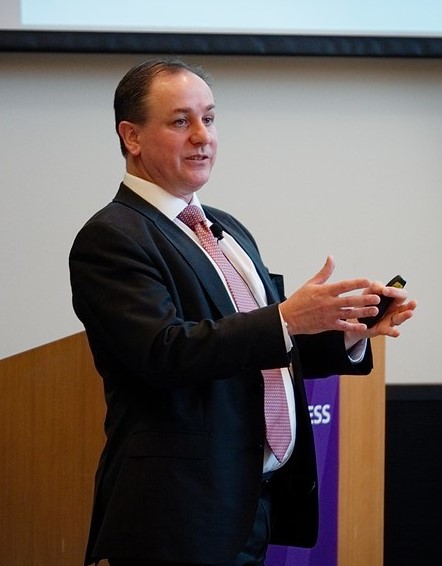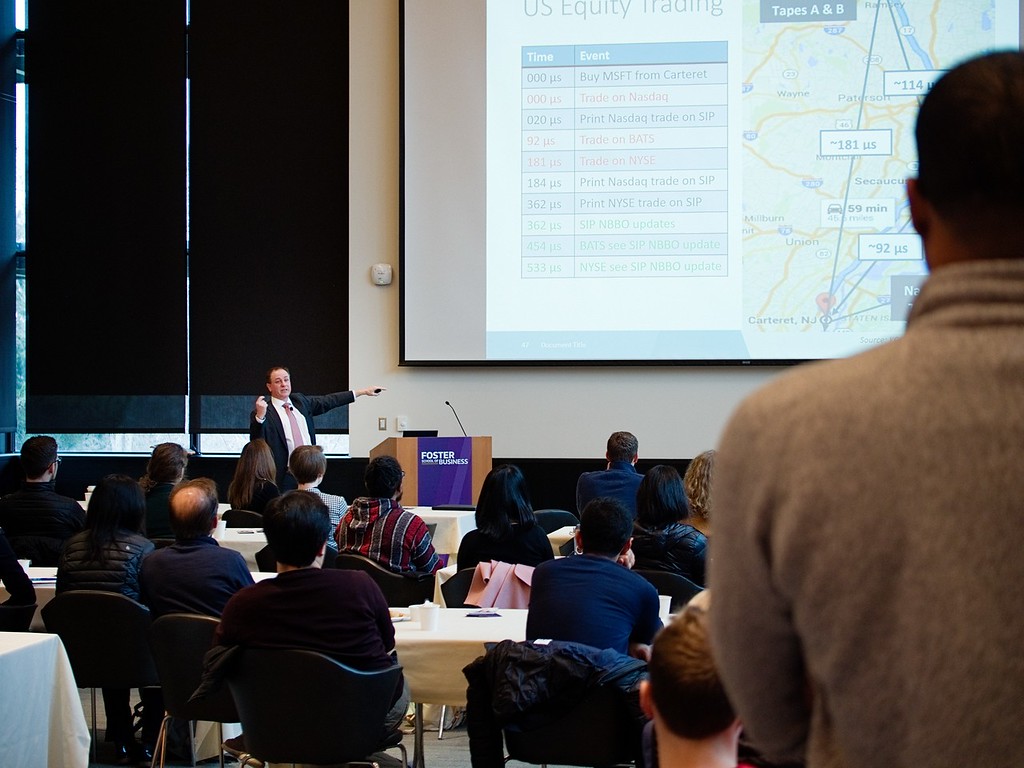
“Look for your problem [to solve]. And once you find it, don’t ever let go.” That was Christina Lomasney’s advice to aspiring entrepreneurs at this morning’s Leaders to Legends lecture at the University of Washington Foster School of Business. Lomasney is co-founder, president, and CEO of Modumetal, which manufactures nanolaminated alloys for the oil and gas industry.
The problem Modumetal is solving is corrosion, which poses a huge threat to our infrastructure—4% of the U.S.’s gross domestic product is spent on corrosion. They do this by manufacturing alloys that are corrosion resistant. Their patented manufacturing process allows them alter the architecture of the metal, which makes it stronger and lighter than steal and more corrosion resistant than galvanization. Additionally, Modumetal is able to manufacture this new class of metal at a competitive cost.
Lomasney, who was named one of Fortune’s Most Promising Entrepreneurs last year, spoke about the challenges Modumetal faced and how they overcame them.
First the team discovered that the technology they thought they invented had already been invented and patented by a company called Delphi. But at the exact same time Modumetal was starting, Delphi was going through bankruptcy. Timing can be everything. This opened the door for Modumetal to buy the patent for the technology.
Another challenge they faced is getting their product into the oil and gas industry, an industry historically unreceptive to innovation. But the Modumetal team worked hard to make inroads and connections in the industry. In 2015 Modumetal received the New Horizons Idea Award at the World Oil Awards. The award recognizes a game-changing product, technology or idea that redefines the industry’s thinking.
 Then another setback—their manufacturing plant on Lake Union burned down in 2013. But even that disaster didn’t diminish Lomasney’s dedication to making the company a success. Drawing inspiration from the likes of former Alabama football coach Bear Bryant, Lomasney maintains that failure only happens when you just give up. Instead of giving up, she and her team simultaneously started manufacturing parts in the lab to fulfill existing orders and set up a new manufacturing facility in Snohomish County in 2014.
Then another setback—their manufacturing plant on Lake Union burned down in 2013. But even that disaster didn’t diminish Lomasney’s dedication to making the company a success. Drawing inspiration from the likes of former Alabama football coach Bear Bryant, Lomasney maintains that failure only happens when you just give up. Instead of giving up, she and her team simultaneously started manufacturing parts in the lab to fulfill existing orders and set up a new manufacturing facility in Snohomish County in 2014.
Through all this Lomasney learned that, “Entrepreneurship is a team sport.” She said, “I thought it was all about the technology, but that’s not true. It’s all about the team.”
Lomasney holds a BS in physics from UW. While at UW, she took financial accounting from Bill Wells and said that understanding how to read income statements and balance sheets is what made it possible for her to create this business.
Christina Lomasney was one of UW Foster School of Business Dean Jim Jiambalvo’s guest speakers at the monthly Leaders to Legends Breakfast Lecture Series, which include notable leaders in an array of industries from greater Seattle and around the country.
The post Christina Lomasney, CEO of Modumetal, speaks at Leaders to Legends appeared first on Foster Blog.










